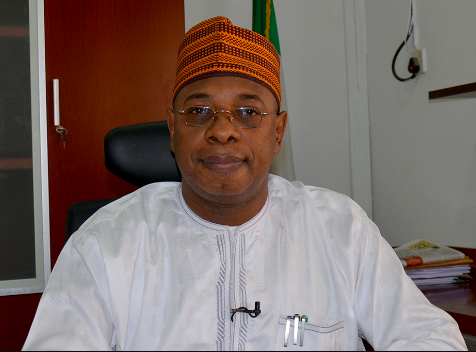Dr. Paul Adalikwu, the Secretary-General of the Maritime Organisation of West and Central Africa (MOWCA), highlighted the urgent need for African governments to step up investments in enhancing maritime security and dredging operations to facilitate easier navigation within the continent’s waterways. His remarks were delivered at the Africa Transport Forum hosted by the African Development Bank in Abidjan, Côte d’Ivoire. The forum’s central theme revolved around the potential, opportunities, and challenges inherent in inland waterways transport across Africa—a sector that Dr. Adalikwu believes holds significant promise for regional development and economic integration.
Adalikwu laid particular emphasis on the importance of fostering robust collaboration between public and private sectors to maximize the benefits offered by inland waterways. By promoting such partnerships, African nations can create a conducive environment that not only stimulates legitimate trade and tourism but also enhances cultural exchange among coastal communities. He portrayed the waterways as valuable natural resources that are essential for the economic, social, and environmental sustainability of these regions. His commendation of the African Development Bank’s investment in the blue economy underscored a shared vision of achieving sustainable development aligned with the African Union Agenda 2063.
The agenda calls for a societal framework that prioritizes human rights, democracy, gender equality, and overall peace and prosperity for all African citizens. Dr. Adalikwu stressed that the collaborative effort must involve both state and non-state actors working sustainably to combat maritime crime, thereby allowing lawful economic activities to flourish in Africa’s waters. He recognized the commitment of various African leaders toward advancing the blue economy, yet pointed out that their financial limitations hindered progress. This observation highlights the necessity for private sector involvement and partnerships with multilateral organizations to expedite the enhancement and management of waterways across the continent.
In furthering the discourse on transportation infrastructure, Adalikwu pointed to the Integrated High-Speed Train Network Programme of the African Union, which aims to link all major African capitals and commercial hubs. This initiative is projected to enable the efficient movement of goods while reducing overall transport costs. Adalikwu argued this would ultimately be enhanced by a sustainable water transportation system that complements the African Continental Free Trade Area (AfCFTA). The synergy among various transportation modalities is seen as critical in fostering regional economic integration, which stands to benefit African nations collectively.
Additionally, Adalikwu underscored MOWCA’s commitment to collaborating with the African Development Bank and other entities to stimulate viable commercial activities within marine spaces. A notable concern raised by him was the presence of wrecks within several key waterways capable of causing navigational hazards. He advocated for the removal of such wrecks, emphasizing their potential for economic recycling once extricated, which would also contribute to the preservation of the marine ecosystem. His call reflects a proactive approach to maritime safety that can promote a more sustainable marine environment.
Through these discussions and proposals, Dr. Adalikwu effectively painted a comprehensive picture of the critical intersection of maritime security, economic opportunity, and environmental sustainability in the context of Africa’s waterways. His vision for enhanced collaboration, investment, and sustainable management reflects an understanding of the holistic approach needed to realize the full potential of inland waterways transport, positioning it as a cornerstone of Africa’s overall economic strategy for the future. The advent of more integrated maritime systems, aligned with continental development goals, is crucial as Africa navigates the complexities of global trade and development within the framework of the 21st-century economy.


